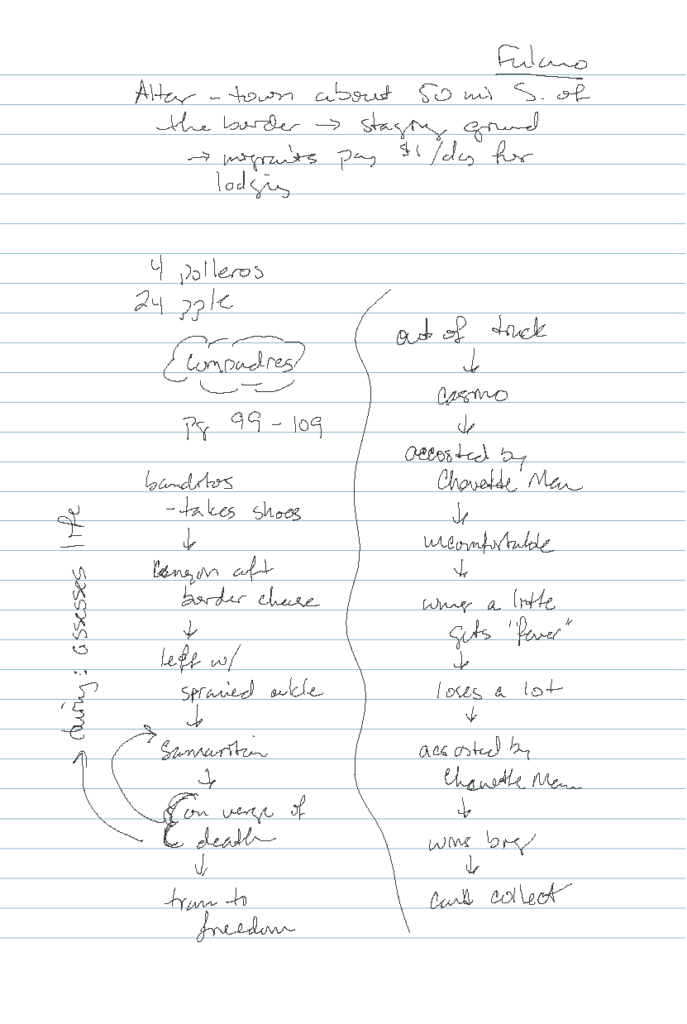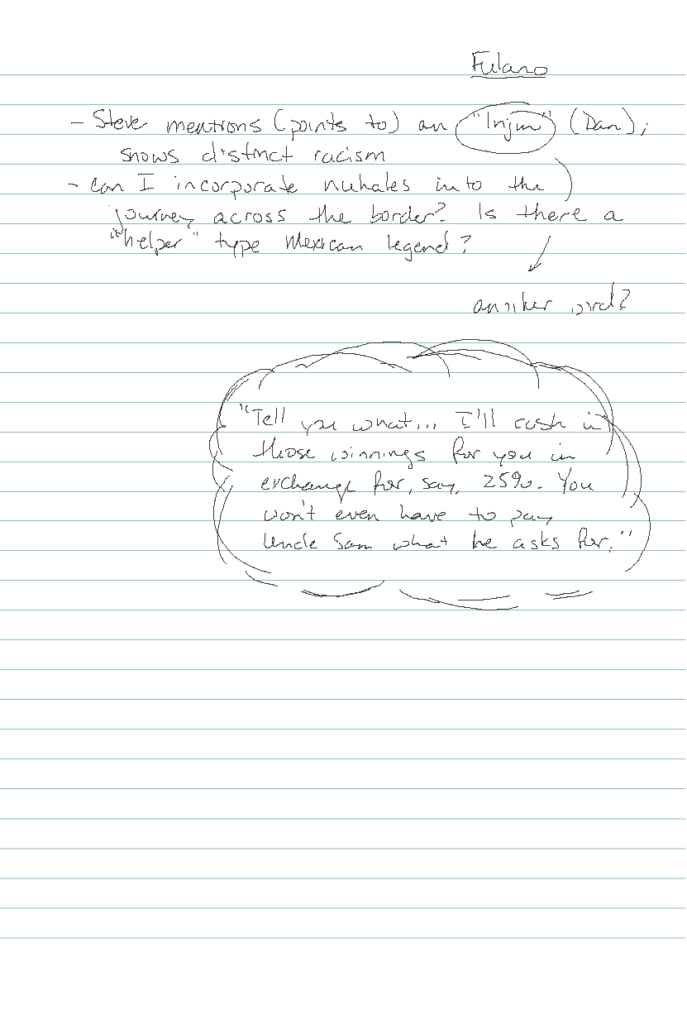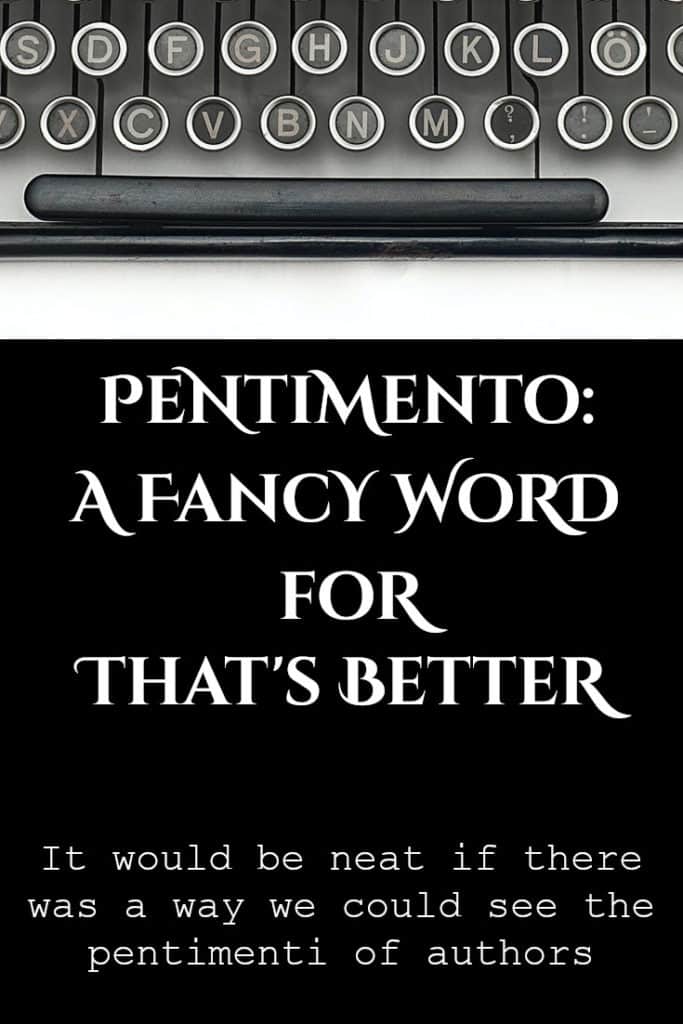Pentimento: a Fancy Word for “That’s Better”
In the world of art (and I’m speaking specifically of painting), the word pentimento (derived from the Italian pentirsi, which means to repent or change your mind) is a change made by the artist during the process of painting. As a painter, I’ve done this many times, although the discovering of the change or changes will never be apparent to future generations. In one instance, I might paint a tree, then move that tree an inch to the right because a) I hate painting trees (they’re not happy) and b) I’m rarely satisfied with initial placements.
Changes made by the masters of old (Picaso, da Vinci, van Gogh, etc.) are typically hidden beneath a subsequent paint layer. As noted by the National Gallery:
In some instances they become visible because the paint layer above has become transparent with time. Pentimenti (the plural) can also be detected using infrared reflectograms and X-rays. They are interesting because they show the development of the artist’s design, and sometimes are helpful in attributing paintings to particular artists.
What the heck am I going on about? Does this have anything to do with writing?.
I often use the term “art” in reference to the written word, because it is art. What you put down on a piece of paper–in the same way an artist splatters paint across a canvas–is an artist expression. It doesn’t matter if it’s horror, romance or some literary fiction piece that’s hard to digest. Creative expression is artistic expression. So why not apply some of the terms used for the masters of oil to our artwork?
You know, like pentimento….
Please understand I’m not talking about drafts. Drafts–to the writer–are semi-finished versions of a story that need to be fleshed out, rewritten, edited for errors, etc. We have our favorite first draft, our toiled over second draft, our third, fourth and fiftieth draft, not to mention advanced reading copies (ARCs) sent off for review purposes. In all of these drafts, however, the general content is essentially the same. There may be minor changes (a character dies earlier, a Chevy Nova becomes a Chrysler LeBaron, etc.), but these aren’t what I would call pentimenti.
One of the sketches I wrote for the Sketches from the Spanish Mustang–a novel I wrote back in 2013–is about a migrant who visits the town of Cripple Creek for the first time. This piece of the story too took a lot of research as bits of history are presented to the reader in tangent with the present.
When I wrote the novel, I had at my disposal next to my bed a Livescribe notebook/pen. I loved the thing; it allowed me to save out my notes as PDFs and visit them on my computer/phone/tablet if I’m away from my bedside. Technology has changed and I no longer use that notebook, but I found the following image from my original notes, something I wrote down while thinking about the story (click the image to make it bigger).

What you see is a structure as originally intended. Note that I wanted the main character Fulano to win a specific sum of money that would require him to fill out Colorado’s gambling tax paperwork. However, because he is migrant without a visa, he is unable to collect the money. A rather unscrupulous character offers to help him.
This is not what appeared when I reached the end of the novella.
Recall that pentimento refers to changes made during the artistic process. This must, therefore, occur before that first draft is complete. What happened with Fulano’s story was interesting: I wrote a few chapters following the general structure, and then I made a discovery that changed everything from that point forward. (Again, click the image to make it bigger.)

Note the word “nuhales” (a misspelling, I know) in the second notebook page. Once I fixated on that (nahuales), nothing else mattered. Not the fact “Steve” was racist. Not the offer I scribbled down in the cloud thingy.
Nothing.
I had suddenly made a change during the artistic process, and the end result was very different from the original idea. To antiquity, though, it will never be known, will it?
I had a thought that it would be neat if there was a way we could see the pentimenti of authors, to uncover it like we can a painter’s work. Of course, without seeing original notes, partial drafts, proposals, etc. we can’t look at a book with an infrared camera and see the words that were changed or the ideas that were cut out altogether.
Still, I think it would be neat if a way could be found, like some futuristic look at the brain of the writer.
Does this happen to anyone else? Do you have pentimenti, or do you delete what your original thoughts were?


















